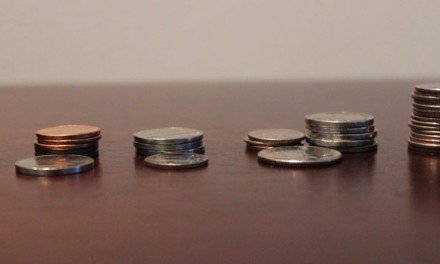Alright, it’s time for more budgeting tips. Make sure you’ve already started your own budget, and that you are comfortable reviewing your transactions.
What else is there?
Well, a big part of your budget should be savings (ideally). Let’s see what you can do to save money.
This is Where Budgeting 101 Comes In
Let’s say you’ve made your budget for the month, and you’ve set aside X dollars for groceries, Y dollars for rent, lots of other categories, and you have Z dollars that you want to put into savings.
This example has just declared that Z shall equal 500. So you have $500 budgeted for your savings, but at the end of the month, you only have $350 left over. What happened?
Well, if you are saving your receipts and keeping track of all of your spending, you should be able to look at your budget and determine where you are overspending. That’s the beauty of reviewing your transactions — it makes it easy to identify problem areas. You might find yourself saying, “Wow, I didn’t realize I spent that much on shoes,” or whatever it is that you buy.
Anyways, back to the savings example — maybe every month it’s a different category that’s over. Gifts, eating out, school supplies… so how do you make sure you are saving enough to reach your goals?
Pay Yourself First
Pay yourself first. That’s the simple answer.
Maybe you’ve heard someone say that before, but it never clicked. You get paid by your employer, right? Isn’t that paying yourself first?
Sort of, but the point is to pay your future self first. In this case, your future self gets paid via your savings account. You are paying yourself so you have money for emergencies, for a car, for a rainy day — whatever your savings goals are.
Most people pay the grocer, the gas station, the restaurants, and the clothing stores first. Then they find out they spent more than they should have. But when the first thing you do with your paycheck is deposit the $500 in your savings, you don’t have to worry about having enough left at the end of the month.
It’s much easier to follow your budget for the other items when you know you can’t go over. Don’t lean on the savings money as a cushion for you to pull from when you want the name brand ice cream. Save the savings and watch your spending in the other areas more carefully. Don’t buy another pair of shoes until your shoe budget resets next month. Otherwise it will bleed over and you’ll spend more than you intended to.
Spend Less Than You Earn

Forget Piggy Banks — Cowwy Banks are all the rage these days.
That should be a no-brainer, but the only way you will net any savings in a given month is by spending less than you make. Paying yourself first helps insure that you do that.
Think about your spending on a monthly basis, and try to stay within your budget each month. Don’t knowingly go over, thinking you’ll probably have a month where you spend less to balance it out. Let’s be honest: that’s not going to happen. If you were willing to go over this month, you’ll be willing to go over next month. Stop that cycle now before it spins out of control.
This is also a great way to push yourself to see just how efficient you can be. If you normally go over your grocery budget by $25, see if you can cull that back to come in below the line. Use coupons, switch brands, buy less dessert — there are plenty of ways to trim your spending.
As long as you have a budget, you should be able to pay yourself first, and still have enough money for all of your other expenses.
Why Save Money, Anyway?
Because life happens. There are always unexpected things that come up that you “can’t afford to deal with” right now.
That’s why you save money — so you can afford to deal with the unexpected. You can pay for the flood damage when your 9 year-old forgets to turn off the bath water. You can pay for the repairs on your car after a hit-and-run. You can fly to another state on short notice for a funeral. You can plan for food and rent, but there are too many curveballs in life to list them all out.
Savings accounts aren’t just for bad days though. Savings can also be used to pay for college tuition, a car, a down payment on a house, an annual vacation — you name it.
And yes, it might be easier to have multiple savings accounts at your bank so you know which money is which. You can put $200 into your “Rainy Day Fund” and $200 into your “Vacation Fund” each month. Splitting up your savings is a helpful way of budgeting for longer term expenditures (meaning non-monthly, such as a yearly vacation).
Having savings is important, as it adds up over time. It will greatly enhance your peace of mind, and can decrease your stress, knowing you are prepared for what life will try to throw at you. Don’t neglect it — pay yourself first!






Recent Comments